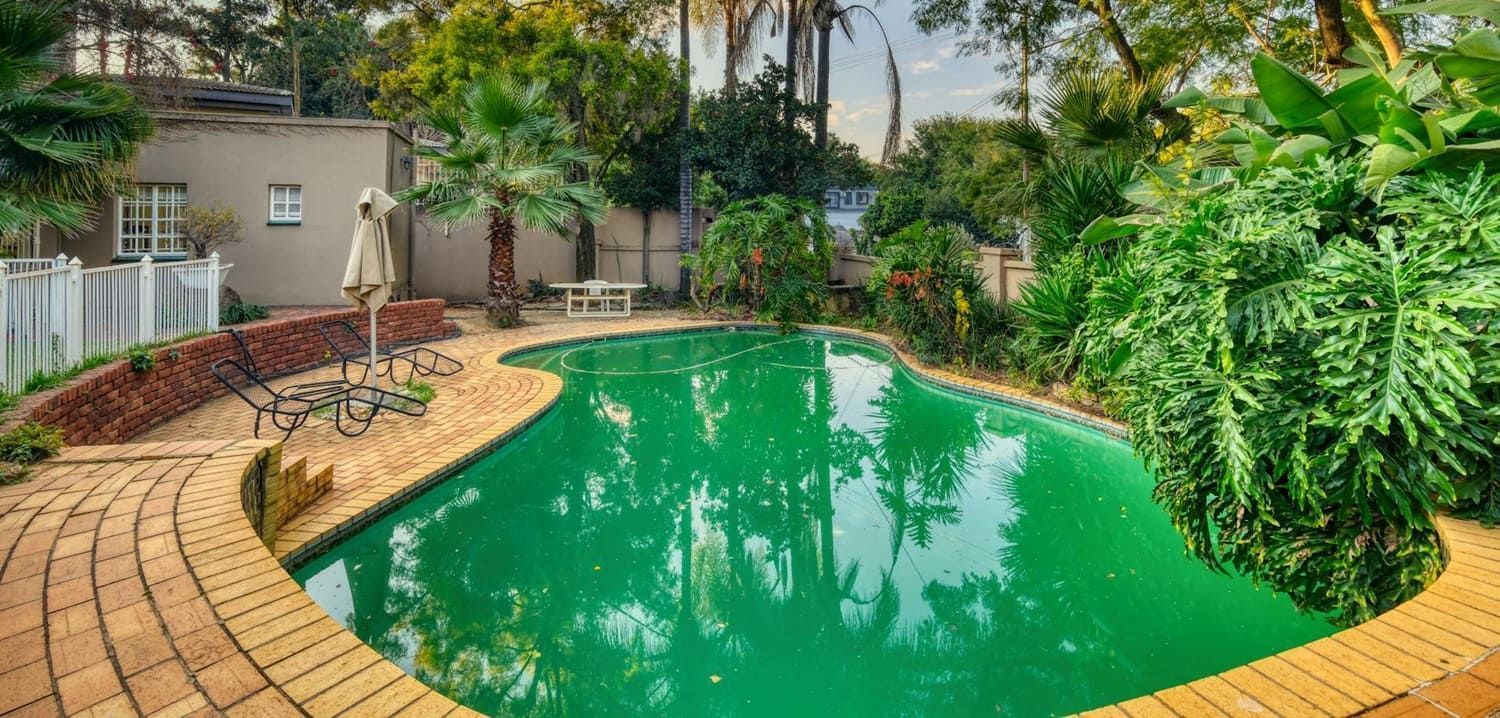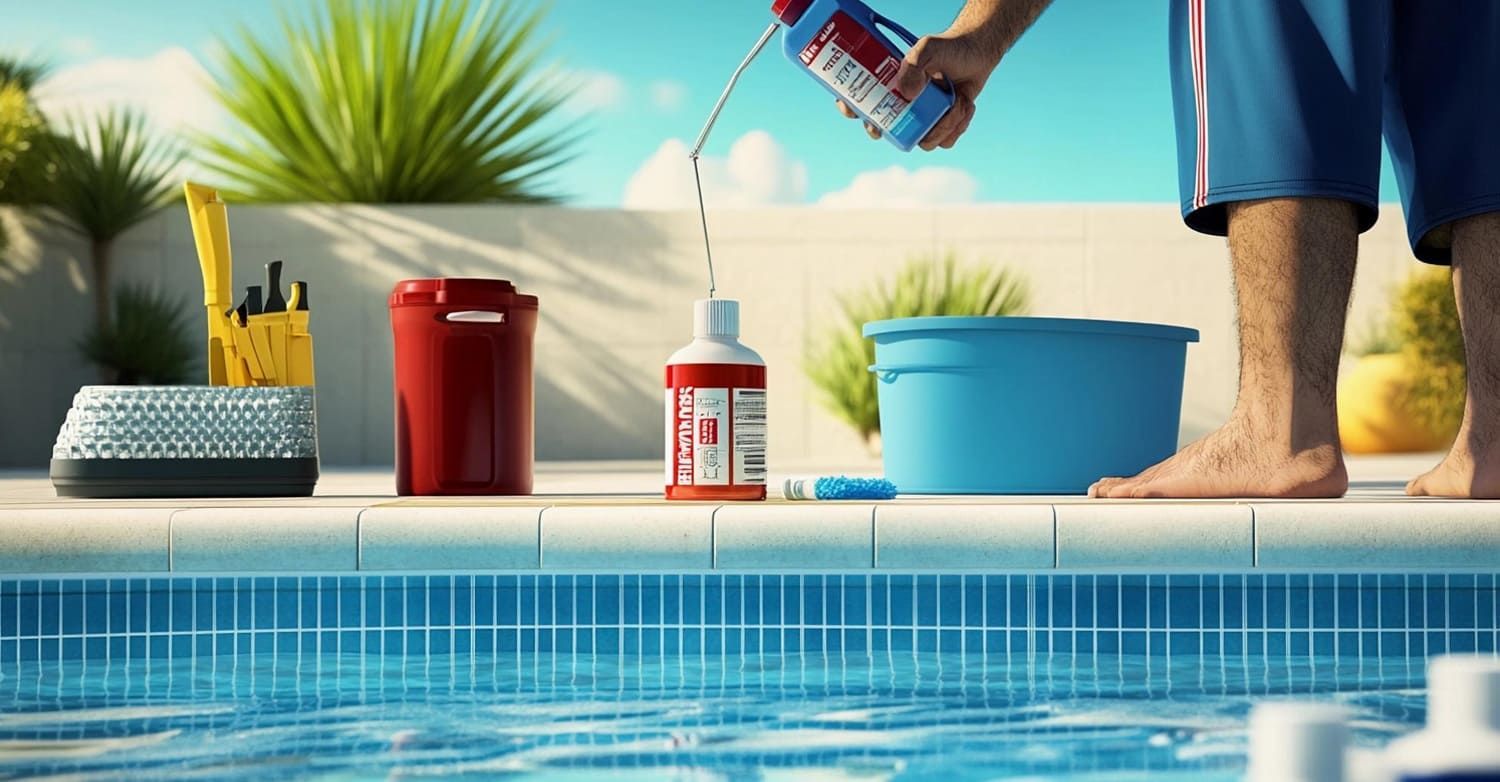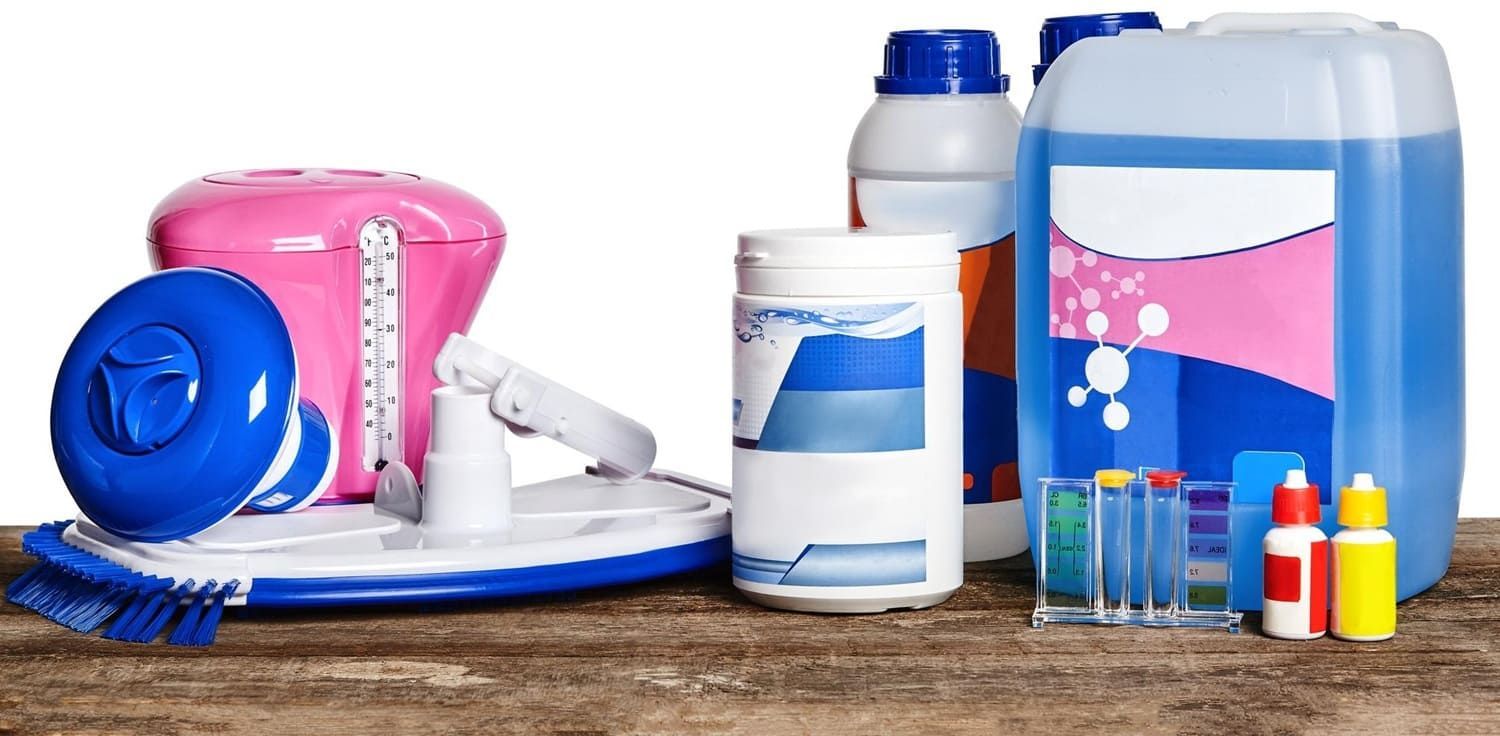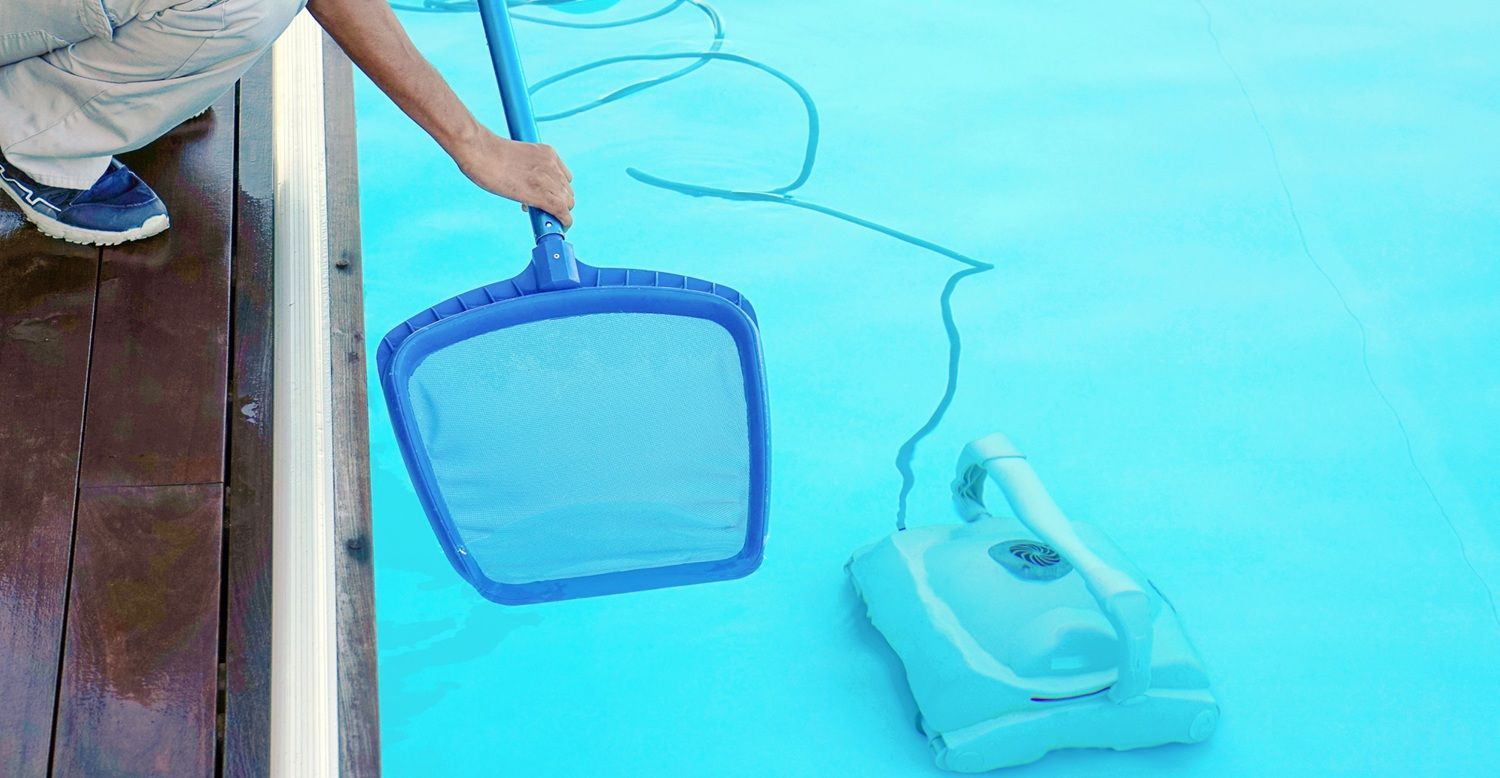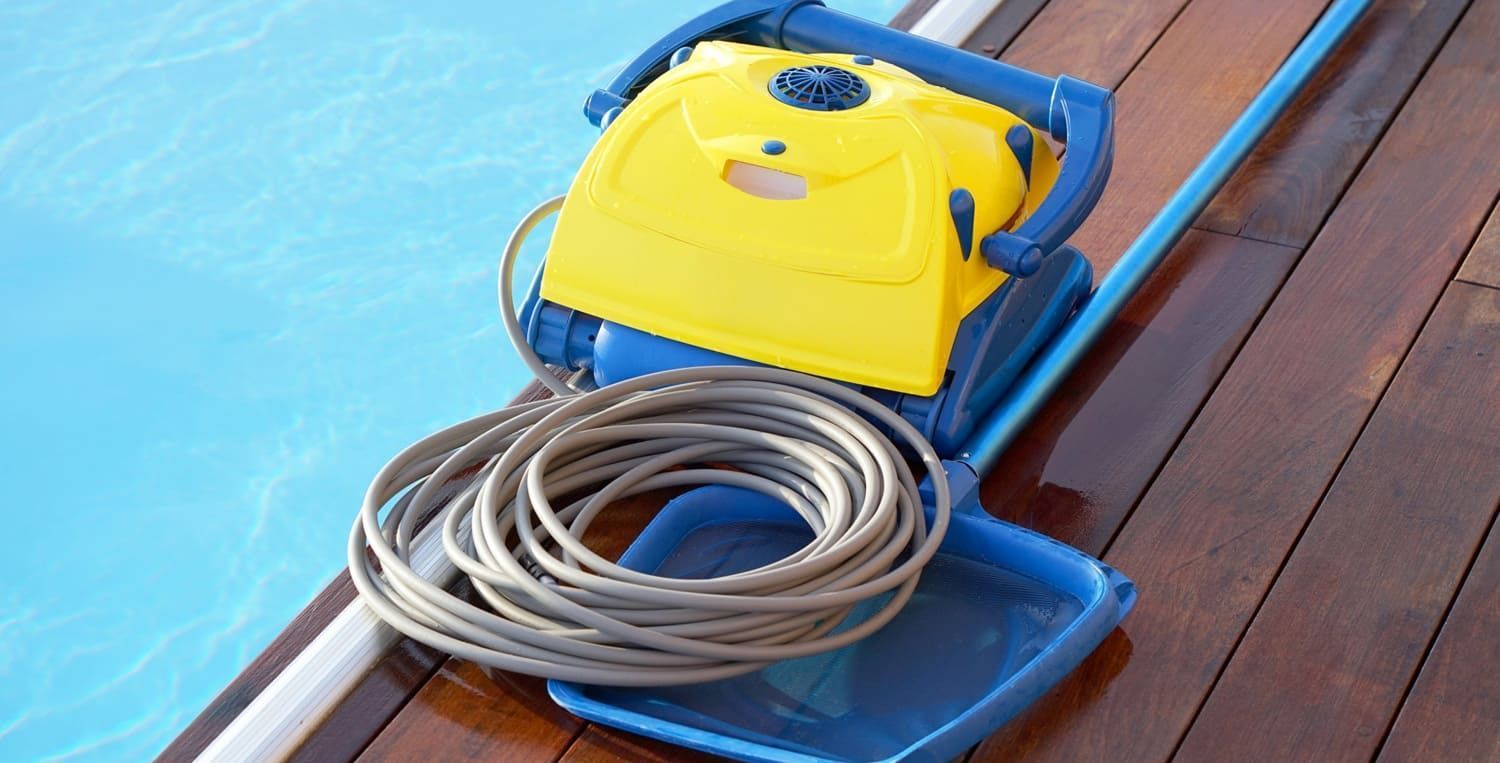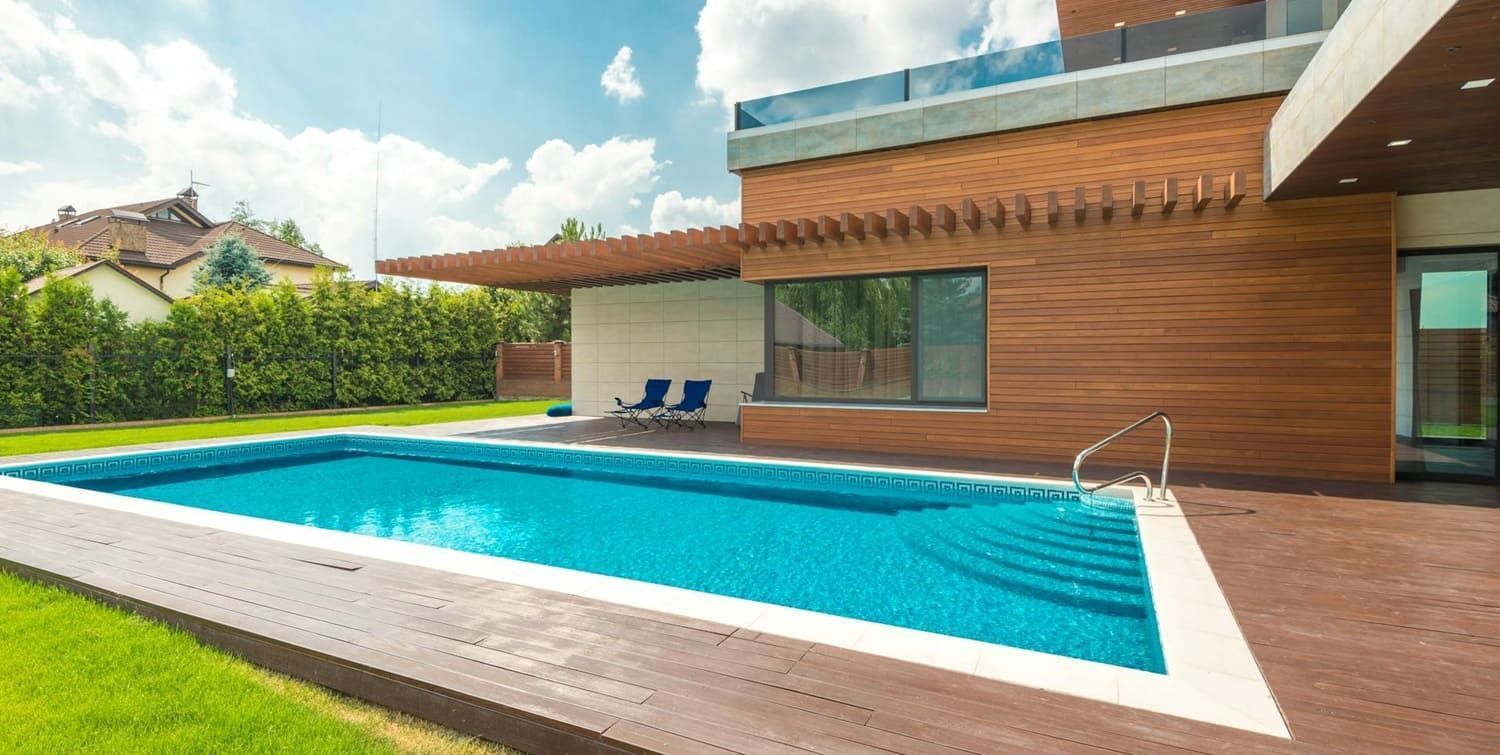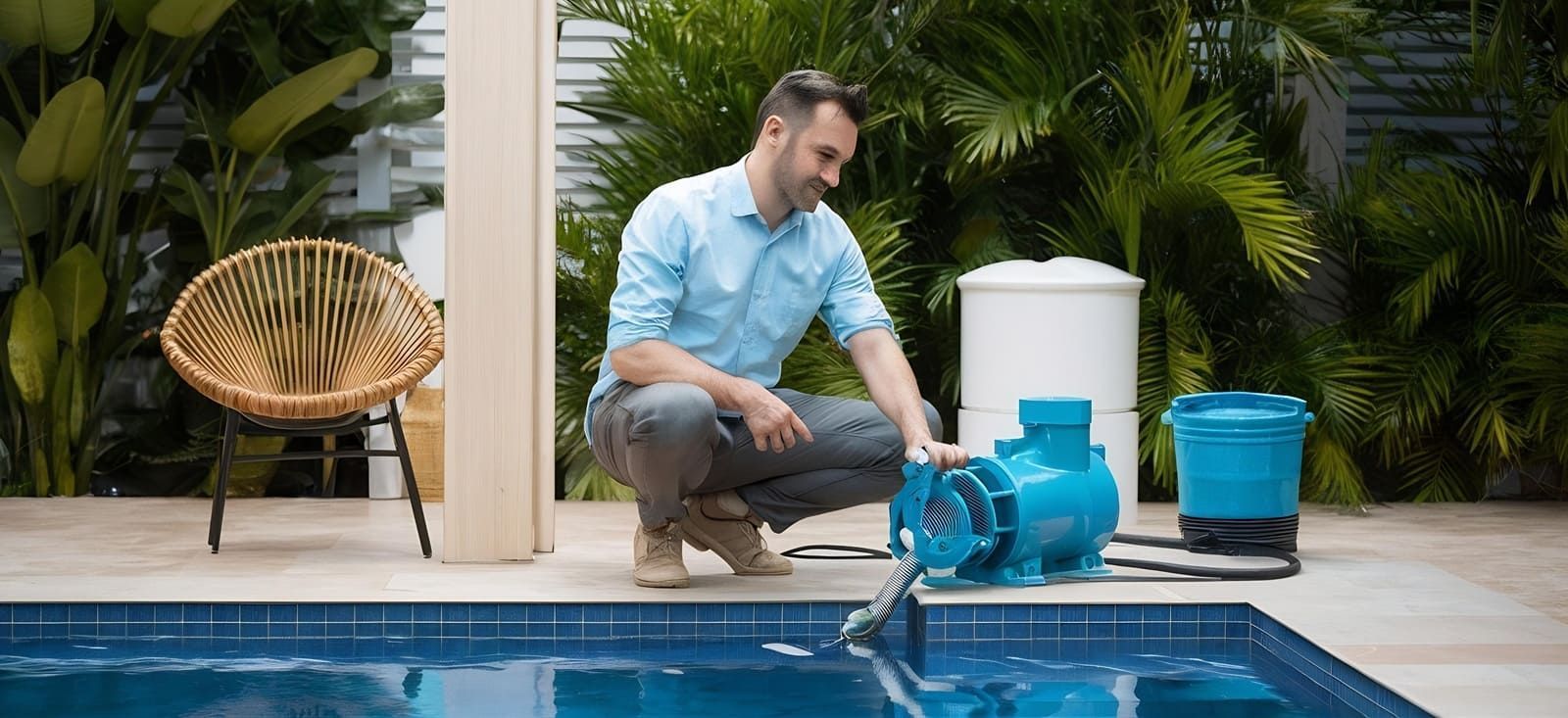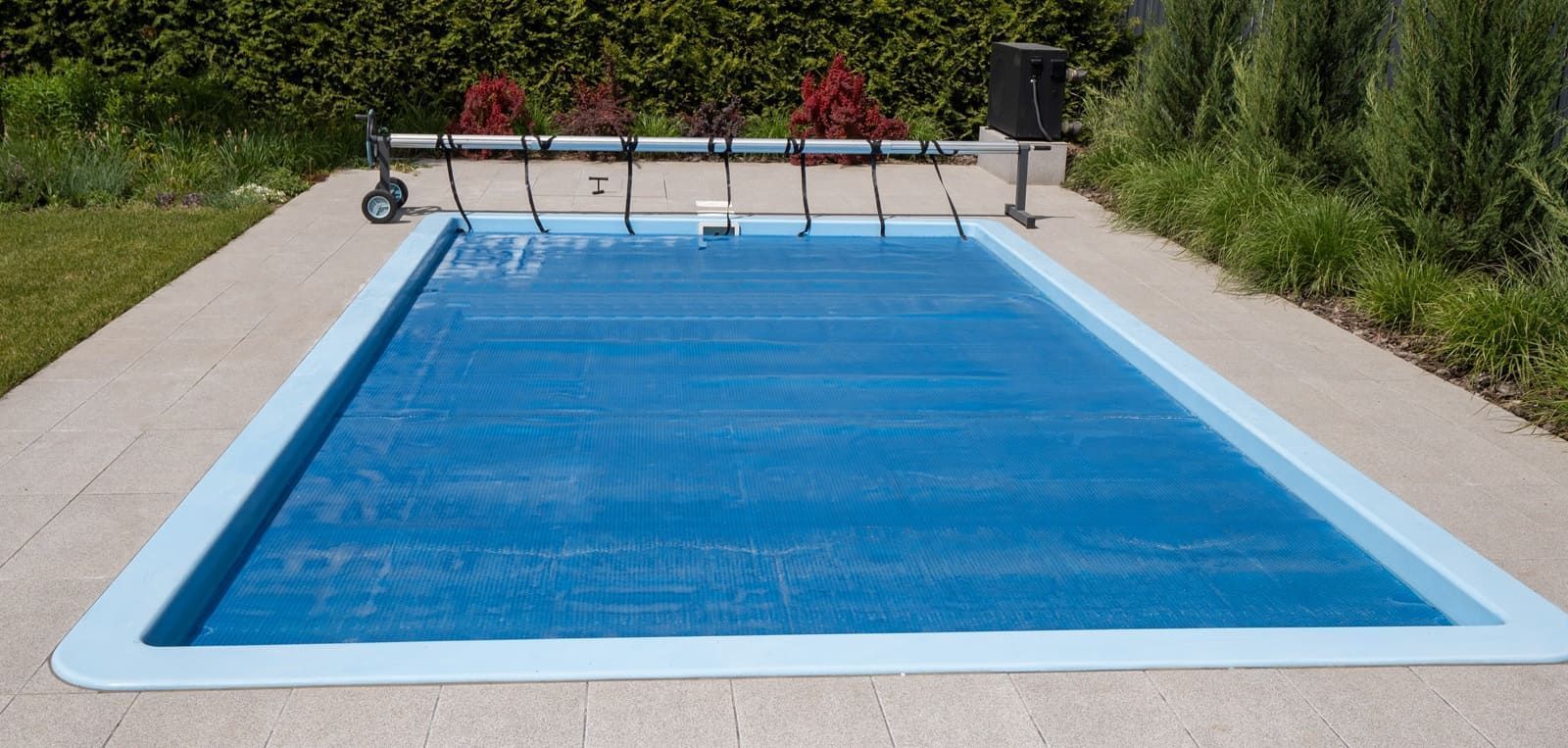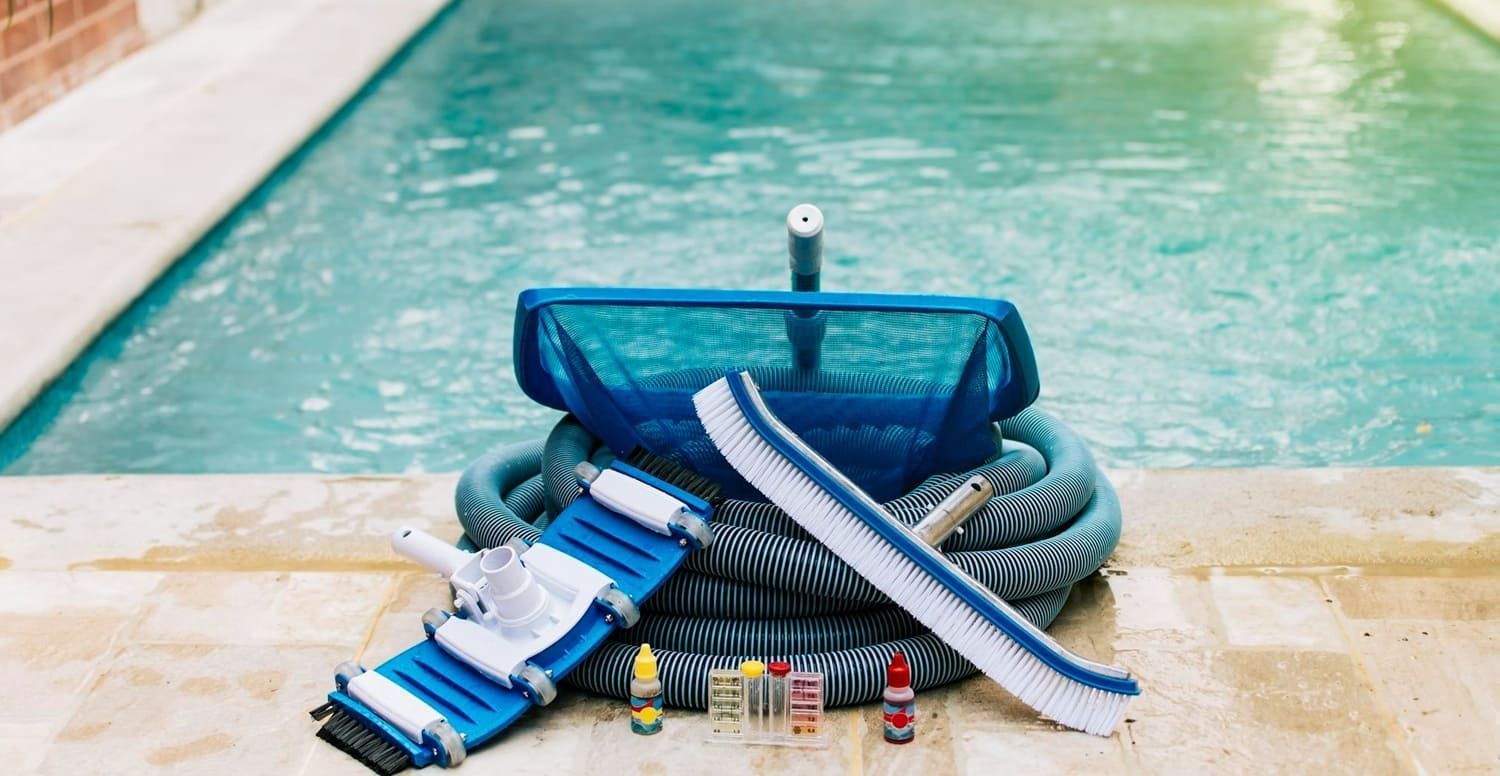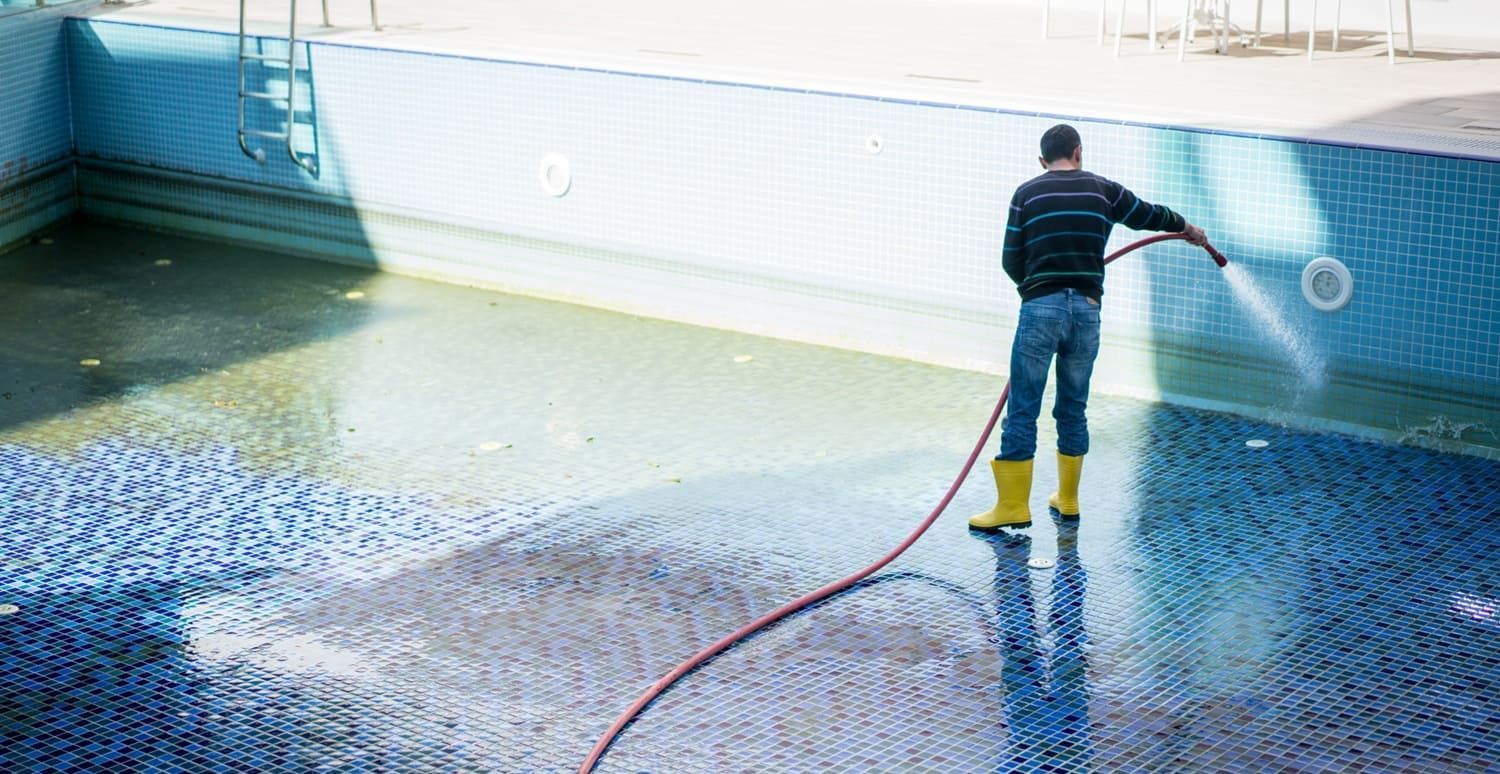How to Store Pool Cleaning Products Safely
Before implementing storage strategies, it's important to understand the various types of pool chemicals that you may have on hand. Common pool chemicals include
chlorine, bromine, algaecides, pH adjusters, and shock treatments. Each of these chemicals plays a unique role in maintaining your pool's water balance and cleanliness, ensuring a safe and pleasant swimming experience.
- Chlorine and Bromine: These are the primary sanitizers used to kill bacteria and control algae growth in the pool. Chlorine is more commonly used, while bromine is an alternative that works well in hot tubs and indoor pools due to its stability at higher temperatures.
- Algaecides: Specifically formulated to target and prevent the growth of algae, algaecides are used as a preventative measure rather than a cure for existing algae problems, ensuring your pool remains clear and algae-free.
- pH Adjusters: Maintaining the correct pH balance is crucial for the effectiveness of other chemicals and the comfort of swimmers. pH adjusters help keep the pool water within the ideal pH range, preventing irritation and equipment damage.
- Shock Treatments: These are used to quickly raise chlorine levels and eliminate contaminants such as bacteria and organic matter. Regular shocking of the pool helps maintain water clarity and sanitation.
These chemicals are highly effective but can be dangerous if mishandled, making proper storage a critical aspect of pool maintenance and safety.
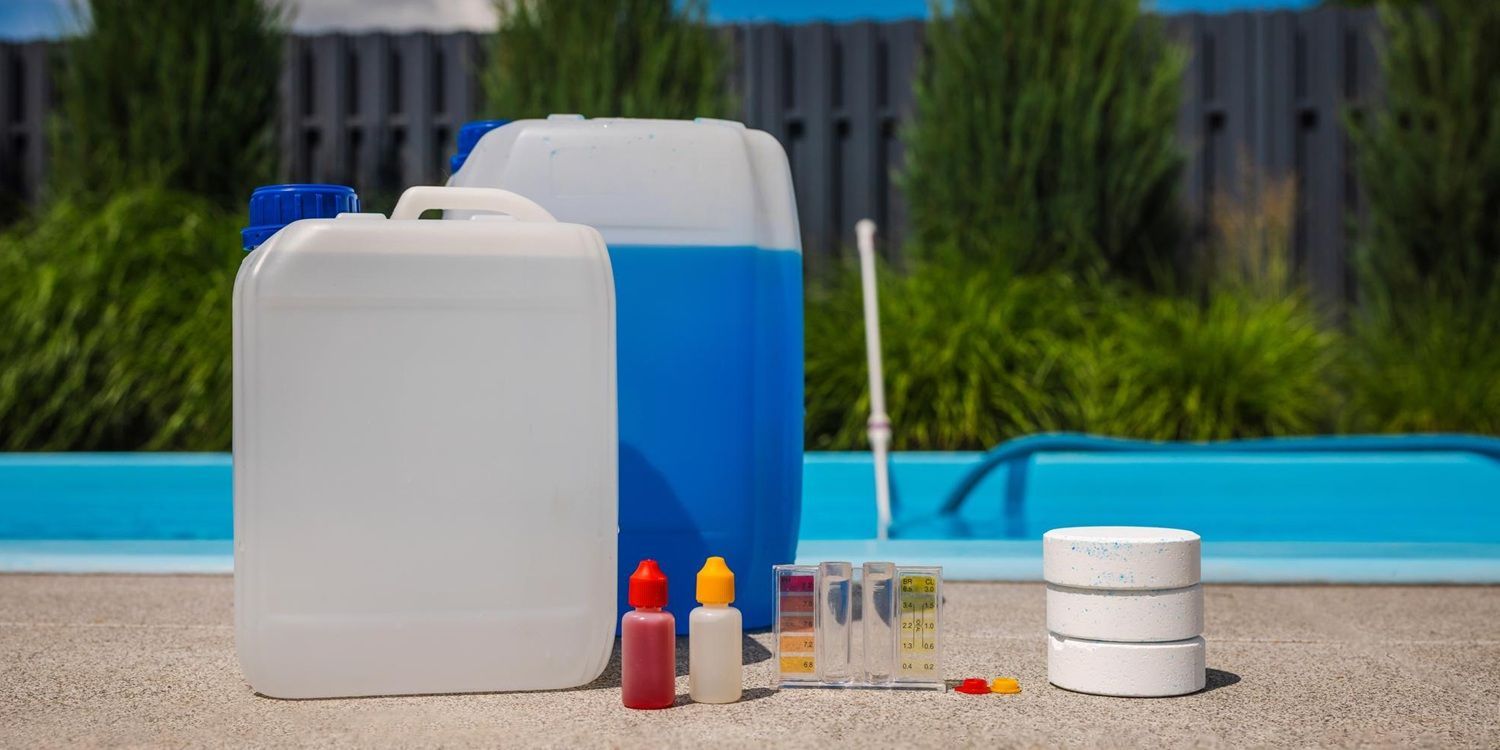
Why Safe Storage Matters
Storing pool cleaning products safely is more than just a matter of organization; it's a crucial practice for ensuring the safety of your household and the longevity of the chemicals. Improper storage can lead to hazardous chemical reactions, spills, or accidental ingestion, posing significant health risks. Moreover, chemicals that are not stored correctly may degrade faster, leading to increased costs as they will need to be replaced more frequently. By prioritizing safe storage, you protect both your family and your investment in maintaining a pristine pool.
Additionally, proper storage practices help prevent environmental contamination. Chemicals stored improperly can leak or spill, potentially entering waterways or the ground, causing harm to local ecosystems. Being a responsible pool owner means taking the necessary steps to store chemicals securely, minimizing the risk of accidents and environmental damage.
Best Practices for Storing Pool Chemicals
Choose the Right Location
- The location of your pool chemical storage is critical to ensuring safety and prolonging the effectiveness of the chemicals. Here are some key considerations to keep in mind:
Ventilation: Storing chemicals in a well-ventilated area is essential to prevent the buildup of harmful fumes. Good airflow reduces the risk of inhalation and potential chemical reactions that could occur in enclosed spaces. - Temperature Control: It's important to avoid storing chemicals in areas that experience extreme temperatures. High heat can cause chemicals to break down or react, while freezing temperatures can render them ineffective. A stable, moderate temperature is ideal for preserving the integrity of your pool chemicals.
- Dry Environment: Moisture is a common enemy of chemical stability. It can cause chemicals to clump, degrade, or even react. Choose a dry location to prevent these issues and ensure the chemicals remain effective and safe for use.
Use Proper Containers
- The type of containers used for storing pool chemicals can significantly impact safety and effectiveness. Follow these guidelines to ensure you are using the right containers:
Original Containers: Always store chemicals in their original containers with labels intact. This practice ensures you have the necessary safety information readily available and reduces the risk of accidental misuse. - Seal Tightly: Ensuring lids are tightly sealed prevents leaks and spills, which are not only wasteful but can also pose health and safety risks.
- Avoid Metal: Some chemicals can corrode metal containers, leading to leaks and potential chemical reactions. Opt for plastic or other non-reactive materials to store your chemicals safely.
Organize and Label
- Keeping your storage area organized is more than just maintaining tidiness; it's a crucial safety measure that can prevent accidents and confusion.
Label Clearly: Ensure all containers are clearly labeled with their contents and any safety warnings. This practice helps prevent accidental misuse and ensures that anyone handling the chemicals is aware of the potential risks. - Separate by Type: Store chemicals separately based on their function. For example, keep acids and bases apart to prevent dangerous reactions. This separation reduces the risk of chemical interactions that could lead to hazardous situations.
- Use Shelving: Utilize shelves to keep chemicals off the ground and organized. This not only helps with organization but also prevents accidental contact with water or other substances on the floor that could cause a reaction.
Maintain Security
- If you have children or pets, securing your pool chemicals is crucial to prevent unauthorized access and accidental ingestion.
Lockable Storage: Use a lockable cabinet or storage shed to prevent unauthorized access. This security measure is particularly important if the storage area is accessible to children or pets. - Out of Reach: Store chemicals out of reach of children and pets, ideally at a height they cannot access. This precaution helps prevent accidental exposure and ingestion, ensuring the safety of your household.
Handling Spills and Emergencies
- Despite your best efforts, spills can happen. Knowing how to handle them safely is essential for minimizing risks and ensuring a quick response.
Wear Protection: Always use appropriate protective gear, such as gloves and eye protection, when handling chemicals or cleaning up spills. This gear protects you from direct contact with the chemicals, reducing the risk of injury. - Contain Spills: Use absorbent materials like sand or a commercial spill kit to contain and clean up any spills promptly. Quick containment prevents the spill from spreading and minimizes potential hazards.
- Dispose Properly: Follow local regulations for disposing of chemical waste. Do not pour chemicals down the drain or into the ground, as this can harm the environment and violate local laws.
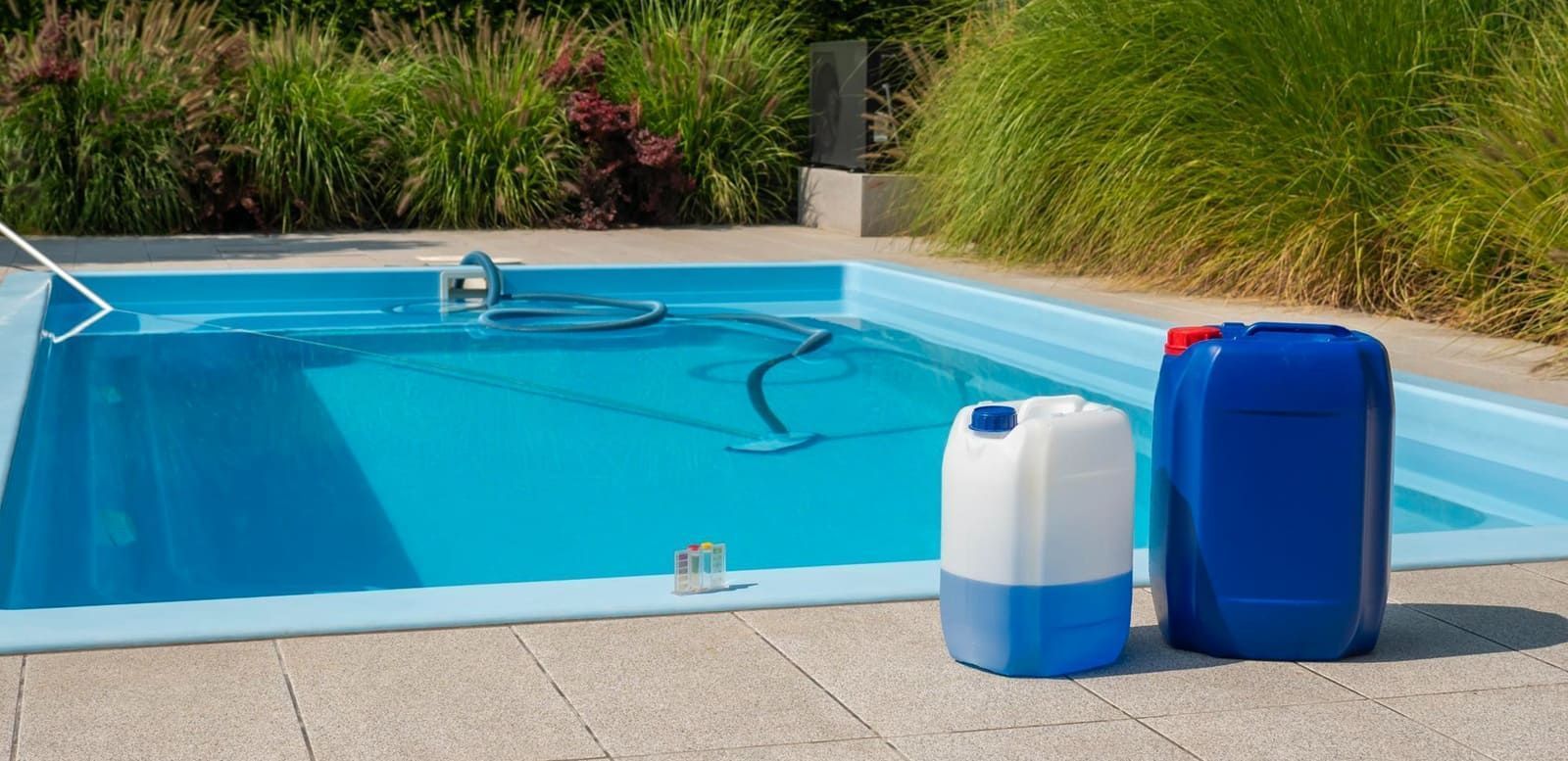
Regularly Inspect Your Storage Area
- Routine inspections of your storage area can prevent accidents and ensure that your chemicals remain safe and effective. Regular checks help identify potential issues before they become significant problems.
Leaks or Damage: Look for signs of leaks or damage to containers and replace them if necessary. Addressing these issues promptly prevents further damage and potential chemical exposure. - Expired Products: Remove expired chemicals from your storage and dispose of them according to local regulations. Expired chemicals may not work effectively and could pose additional risks.
- Organization: Ensure everything is in its designated place and labels are visible. Regular organization checks help maintain order and ensure that all safety information is accessible.
Conclusion
At LayorCare Pool & Patio Protection , we offer the best pool cleaning products to help you maintain a safe, clean, and enjoyable swimming environment. But just as important as choosing the right products is storing them properly. By selecting an appropriate storage location, using secure containers, organizing your supplies, and safely handling chemicals, you can prevent accidents and extend the life of your pool care essentials.
Routine inspections and correct handling of spills ensure your pool remains a secure and relaxing space for you and your family. Remember, safety comes first—and proper storage is a key part of responsible
pool maintenance.
By following these guidelines, you're not only protecting your household but also supporting a more sustainable and environmentally responsible approach to
pool care.
Contact LayorCare Pool & Patio Protection today if you have any questions—we’re here to help you make
pool maintenance safer and easier.
FAQs About Safe Storage of Pool Cleaning Products
How should I store pool chemicals safely?
Store pool chemicals in a cool, dry, well-ventilated area away from direct sunlight and extreme temperatures. Keep them in original containers with labels intact and lids tightly sealed. Use lockable storage cabinets or sheds to prevent access by children and pets. Separate different chemical types, especially acids and bases, to prevent dangerous reactions. Store on shelves off the ground to avoid moisture contact. Ensure good airflow to prevent fume buildup and maintain stable temperatures between 50-80°F for optimal chemical integrity.
Where is the best place to store pool chemicals?
The best location is a dedicated storage shed, garage corner, or utility room that is cool, dry, and well-ventilated. Avoid basements prone to flooding, areas near heat sources, or spaces with temperature fluctuations. Never store in direct sunlight or where temperatures exceed 95°F or drop below freezing. Keep away from living areas, food storage, and high-traffic zones. Ensure the area has good airflow and is inaccessible to children and pets through locks or height placement.
Can I store pool chemicals in my garage?
Yes, garages can work if they meet safety requirements. Ensure adequate ventilation, stable temperatures, and dry conditions. Use a dedicated locked cabinet or high shelf away from vehicles, tools, and other household items. Keep chemicals away from heat sources like water heaters or direct sunlight through windows. Never store near gasoline, paint, or other flammable materials. If your garage gets extremely hot in summer or freezing in winter, consider alternative storage locations.
Should pool chemicals be stored in original containers?
Yes, always store pool chemicals in their original containers with labels intact. Original packaging is designed for that specific chemical and includes critical safety information, usage instructions, and expiration dates. Transferring chemicals to other containers increases risk of mislabeling, contamination, and dangerous reactions. If a container is damaged, contact the manufacturer for proper transfer procedures rather than using random containers. Keep all safety data sheets accessible near storage area.
Can different pool chemicals be stored together?
No, different pool chemical types should be stored separately to prevent dangerous reactions. Never store acids near bases or oxidizers near organic materials. Keep chlorine products away from algaecides and shock treatments separate from pH adjusters. Use separate shelves or compartments with space between different chemical types. This separation prevents accidental mixing from spills or container failures. Organize by chemical function and clearly label each storage section for easy identification.
How do I organize pool chemical storage?
Use sturdy shelving to keep chemicals off the ground and organized by type. Label all containers clearly with contents and safety warnings. Store heavier items on lower shelves and lighter items higher up. Keep frequently used chemicals easily accessible while securing hazardous ones in locked areas. Maintain a chemical inventory list posted in the storage area. Ensure labels face forward for easy identification. Leave space between different chemical types and never stack containers that could fall or leak.
What temperature should pool chemicals be stored at?
Store pool chemicals at stable temperatures between 50-80°F. Avoid extreme heat above 95°F which can cause chemicals to break down, react, or release dangerous fumes. Freezing temperatures below 32°F can render some chemicals ineffective or cause containers to crack. Maintain consistent temperatures without dramatic fluctuations. If your storage area experiences temperature extremes, consider insulation, climate control, or relocating chemicals to a more stable environment for safety and effectiveness.
How long can pool chemicals be stored?
Most pool chemicals last 1-3 years when stored properly in original sealed containers. Chlorine tablets typically last 3-5 years, liquid chlorine 1 year, shock treatments 1-2 years, and algaecides 2-3 years. Always check expiration dates on containers. Chemicals exposed to moisture, heat, or air degrade faster. Inspect regularly for clumping, discoloration, or unusual odors indicating degradation. Dispose of expired chemicals properly according to local regulations. Proper storage extends shelf life significantly.
What should I do if pool chemicals get wet?
If containers get wet externally, dry them immediately and check for damage or leaks. If chemicals inside get wet, they may clump, degrade, or react dangerously. Do not attempt to dry or use wet chemicals. Isolate the affected container in a well-ventilated area away from other chemicals. Contact the manufacturer or local hazardous waste facility for disposal instructions. Never pour wet or contaminated chemicals down drains. Prevent moisture exposure by storing in dry locations with proper ventilation and sealed containers.
How do I dispose of old pool chemicals?
Never pour pool chemicals down drains, toilets, or onto the ground. Contact your local hazardous waste facility or household hazardous waste collection program for proper disposal. Many communities offer special collection days for chemical waste. Keep chemicals in original containers with labels for identification during disposal. Some pool supply stores accept old chemicals for proper disposal. Follow all local regulations and never mix chemicals before disposal. Proper disposal protects the environment and prevents contamination.
Can pool chemicals be stored near food or living areas?
No, never store pool chemicals near food, kitchens, dining areas, or living spaces. Chemicals can release fumes that contaminate food or cause respiratory issues. Store in separate, dedicated areas like sheds, garages, or utility rooms away from household activities. Ensure storage location has its own ventilation system not connected to living areas. Keep chemicals away from pet food and water bowls. This separation prevents accidental exposure, contamination, and health risks to family members and pets.
What safety equipment do I need for storing pool chemicals?
Essential safety equipment includes lockable storage cabinets, sturdy shelving, clear labeling materials, and spill containment supplies. Keep protective gear nearby including chemical-resistant gloves, safety goggles, and face masks. Have a spill kit with absorbent materials like sand or commercial absorbents. Post emergency contact numbers and safety data sheets in the storage area. Install adequate lighting for safe handling. Consider a fire extinguisher rated for chemical fires. Proper equipment prevents accidents and enables quick emergency response.
How do I handle pool chemical spills safely?
Immediately ventilate the area and evacuate people and pets. Wear protective gear including gloves, goggles, and mask before approaching the spill. Use absorbent materials like sand, cat litter, or commercial spill kits to contain and absorb the spill. Never use water on dry chemical spills as it can cause reactions. Sweep up absorbed material into a sealed container for proper disposal. Never mix spilled chemicals. Contact local hazardous waste authorities for disposal guidance. Clean the area thoroughly after containment.
Should I keep pool chemical safety data sheets?
Yes, keep safety data sheets (SDS) for all pool chemicals in an accessible location near your storage area. SDS provide critical information about chemical composition, hazards, first aid procedures, and emergency response. They're essential for emergency responders if accidents occur. Request SDS from manufacturers or download from their websites. Store in a waterproof folder or binder clearly marked and easily accessible. Review SDS before using new chemicals. This information can save lives during emergencies and ensures proper handling.
How often should I inspect my pool chemical storage area?
Inspect your storage area monthly for leaks, damaged containers, expired products, and proper organization. Check container seals, look for corrosion or deterioration, and verify labels remain legible. Ensure ventilation systems work properly and temperatures remain stable. Remove expired chemicals immediately and dispose properly. Verify locks function correctly and shelving remains sturdy. After severe weather or temperature extremes, conduct additional inspections. Regular checks prevent accidents, maintain chemical effectiveness, and ensure ongoing safety for your household.
Recent Posts
